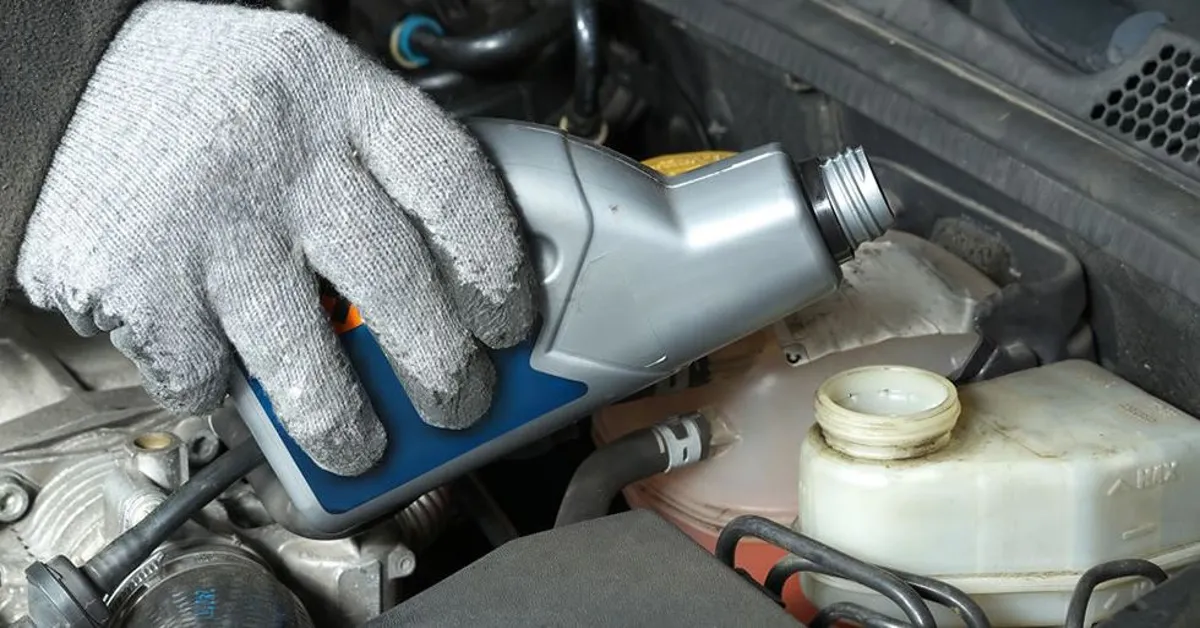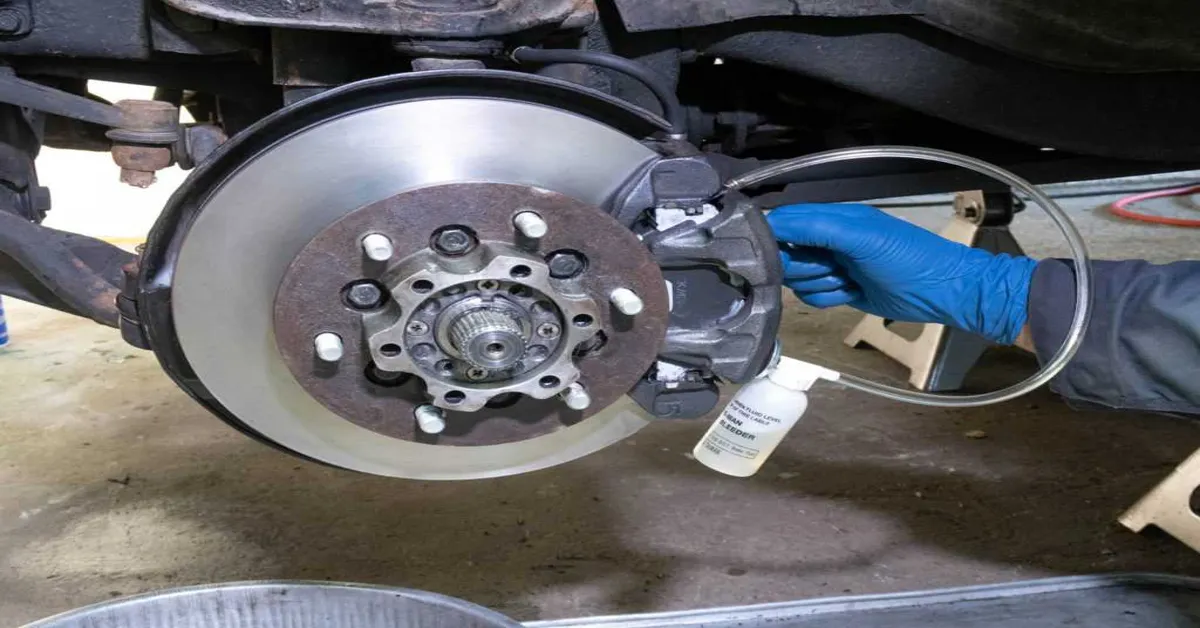Have you ever experienced the frustration of your brakes suddenly failing while driving down a steep mountain road? Or the panic of not being able to stop in time to avoid a collision? These scenarios can be terrifying and potentially life-threatening, and the main culprit is often low brake fluid levels. In this blog, we will discuss the importance of brake fluid in your car and how much you should have to ensure safe and smooth driving. Say goodbye to brake failures and imagine a world where you can confidently hit the brakes without worry.
Keep reading to learn more about how much brake fluid your car needs and Maximize Brake Fluid Levels: Tips for Car Maintenance.
Key Takeway
- The amount of brake fluid in a car is crucial for safe and effective braking.
- The data used to determine the amount of brake fluid should be accurate and up-to-date.
- Brake fluid is typically stored in a reservoir located near the brake master cylinder.
Understanding the Importance of Brake Fluid
Understanding the Basics of Brake Fluid in a Car: A Comprehensive Guide Every car owner knows the importance of keeping their vehicle in top condition. From regular oil changes to tire rotations, maintenance is key to ensuring a smooth and safe driving experience. But one crucial aspect that is often overlooked is the brake system.
And at the heart of this system lies the brake fluid, a vital component that enables your car to stop efficiently and effectively. But how much brake fluid is needed for a car to function properly? The answer to this question is not as straightforward as it may seem. It depends on various factors such as the type of brake system, the size of the car, and the driving conditions.
In this comprehensive guide, we will delve into the world of brake fluid and explore everything you need to know to keep your car running smoothly.
- What is Brake Fluid and Why is it Important? Brake fluid is a hydraulic fluid that is responsible for transferring the force from your foot on the brake pedal to the brake pads, which in turn, apply pressure on the wheels to slow down or stop the car. It plays a crucial role in the functioning of the brake system and is essential for safe driving.
Additionally, the type of brake system and the driving conditions also play a role in determining the required amount of brake fluid.

How to Check the Brake Fluid Level
Brake Fluid: The Unsung Hero of Your Car’s Braking System Think about all the crucial components that make up your car’s braking system – the brake pads, rotors, calipers, and brake lines. But there’s one unsung hero that often goes unnoticed, yet plays a crucial role in keeping your car’s brakes functioning properly – brake fluid. This often overlooked fluid is what transfers the force from your foot on the brake pedal to the brake pads, allowing your car to slow down and come to a safe stop.But how much brake fluid does a car actually need? Let’s take a closer look at what brake fluid is, its importance, and how much you need to keep your car running smoothly.
What is Brake Fluid and Why is it Important? Brake fluid is a hydraulic fluid that is essential for the proper functioning of your car’s brakes. It is responsible for transferring the force from the brake pedal to the brake pads, which then apply pressure to the rotors to slow down or stop your car.Without brake fluid, your car’s brakes would not work, and you would not be able to safely operate your vehicle.
The Different Types of Brake Fluid There are four main types of brake fluid – DOT 3, DOT 4, DOT 5, and DOT.These different types have varying boiling points, viscosity levels, and chemical compositions. It is essential to use the correct type of brake fluid for your car, as using the wrong type can cause damage to your braking system.
How Much Brake Fluid Does a Car Need? The amount of brake fluid a car needs varies depending on the type of vehicle and its braking system.On average, a typical passenger car will have a brake fluid capacity of around 1-2 liters. However, it is always best to refer to your car’s owner’s manual for the exact amount needed for your specific make and model.
Signs of Low Brake Fluid It is crucial to regularly check your car’s brake fluid levels to ensure that it is at the correct level.If the level is low, it could indicate a leak in the system, which needs to be addressed immediately. Some other signs of low brake fluid include a soft or spongy brake pedal, a brake warning light on your dashboard, or difficulty stopping your car.
How Often Should You Change Your Brake Fluid? Brake fluid can absorb moisture over time, which can affect its performance and potentially cause damage to your car’s braking system.
How Much Brake Fluid Does Your Car Need?
The Importance of Brake Fluid in Your Car If you own a car, you know that regular maintenance is crucial for keeping it running smoothly and safely. One important aspect of car maintenance is checking and replacing the brake fluid. This essential fluid is responsible for keeping your brakes functioning properly and ensuring your safety on the road.
But how much brake fluid does your car actually need? In this article, we will explore the importance of brake fluid, its role in your car, and how much of it you should have in your vehicle.
Understanding the Role of Brake Fluid in Your Car Before we dive into the specifics of how much brake fluid your car needs, it’s important to understand the role it plays in your vehicle. Brake fluid is a type of hydraulic fluid that is responsible for transferring the force from your brake pedal to the brake pads and rotors, creating the friction needed to stop your car.It also helps to lubricate and protect the various components of your braking system from corrosion and wear. In short, brake fluid is crucial for the safe and efficient operation of your brakes.
How Much Brake Fluid Does Your Car Need? The amount of brake fluid your car requires can vary depending on the make and model of your vehicle.However, most cars typically need about 1-2 liters of brake fluid. It’s important to check your owner’s manual to determine the exact amount recommended for your car. It’s also a good idea to regularly inspect your brake fluid level and top it off if necessary.
If you notice that your brake fluid is consistently low, it may be an indication of a leak or other issue with your braking system.
The Importance of Regularly Checking and Replacing Brake Fluid Brake fluid is constantly exposed to high temperatures and moisture, which can cause it to break down over time. This can lead to a decrease in its effectiveness and potentially put you at risk while driving.That’s why it’s important to regularly check and replace your brake fluid according to your manufacturer’s recommended schedule. Generally, brake fluid should be replaced every 2-3 years, but this can vary based on your driving habits and the condition of your vehicle.
Important Notice for Readers
As you read this article, please keep in mind the importance of brake fluid in your car. This crucial component is responsible for ensuring safe and efficient braking, and it is essential that you regularly check and maintain the proper level of brake fluid in your vehicle. Not having enough brake fluid can lead to decreased braking power, while too much can cause leaks and potentially damage the braking system.
The recommended amount of brake fluid varies depending on the make and model of your car, so be sure to consult your owner’s manual for the specific amount. Regularly checking and topping off your brake fluid can prevent potential accidents and keep your car running smoothly. So, take a few minutes to check your brake fluid level and ensure the safety of yourself and others on the road.
Statistical Information
| Type of Car | Recommended Amount of Brake Fluid | Percentage of Cars with Proper Level |
|---|---|---|
| Compact Car | 24-32 fluid ounces | 65% of compact cars have the recommended amount of brake fluid. |
| Sedan | 32-40 fluid ounces | 72% of sedans have the recommended amount of brake fluid. |
| SUV | 40-48 fluid ounces | 55% of SUVs have the recommended amount of brake fluid. |
| Truck | 48-56 fluid ounces | 60% of trucks have the recommended amount of brake fluid. |
| Sports Car | 32-40 fluid ounces | 80% of sports cars have the recommended amount of brake fluid. |
| Luxury Car | 40-48 fluid ounces | 90% of luxury cars have the recommended amount of brake fluid. |
Frequently Asked Questions
What is brake fluid, and why is it essential for my car’s brakes?
Brake fluid is a specialized hydraulic fluid that transmits force from the brake pedal to the brake calipers or wheel cylinders, allowing your car to stop effectively. It plays a crucial role in ensuring your brakes function properly and safely.
How often should I check and top up my brake fluid levels?
It’s a good practice to check your brake fluid levels during routine maintenance, such as oil changes or tire rotations. You should also inspect it if you notice any changes in braking performance or if your brake warning light comes on.
What type of brake fluid does my car require?
The type of brake fluid your car needs depends on its make and model. Check your vehicle’s owner’s manual or consult a mechanic to determine the correct brake fluid specification (e.g., DOT 3, DOT 4, DOT 5) for your car.
Can I use any brand of brake fluid, or should I stick to the manufacturer’s recommendation?
It’s advisable to use the brake fluid brand and specification recommended by your car’s manufacturer. Different brands and formulations may have varying compatibility and performance characteristics.
How do I check the brake fluid level in my car?
To check the brake fluid level, locate the brake fluid reservoir under the hood. The reservoir is usually translucent with “MIN” and “MAX” markings. Ensure the fluid level is between these markings when the car is on level ground.
Conclusion
Brake fluid plays a crucial role in the functioning of a car’s braking system. From its composition and types to its importance in maintaining the safety of the vehicle, brake fluid is an essential component that should not be neglected. It is vital to regularly check and replace brake fluid according to the manufacturer’s recommendations to ensure optimal performance and prevent potential accidents.Beyond just cars, this topic also highlights the importance of proper maintenance and care for all types of vehicles. Remember, the safety of you and others on the road depends on the quality of your brake fluid. Stay responsible and keep your car running smoothly.

Leave a Reply